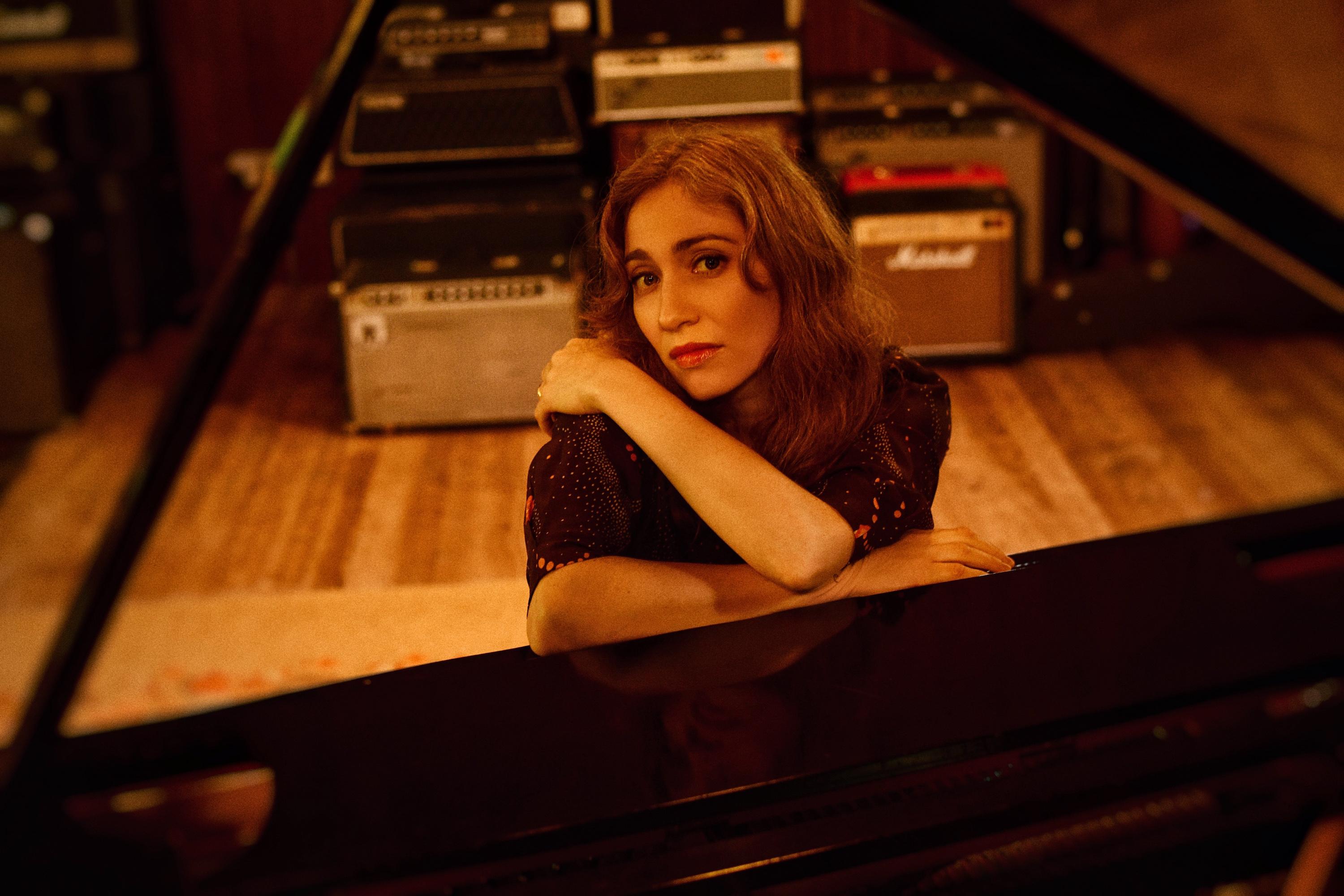Q&A: Artist Regina Spektor discusses fiction writing, capturing the spirit of songs
Amps and hardwood flooring line the space behind Regina Spektor as she leans toward the piano to pose. The Russian-American musician will perform at the Greek Theatre on Thursday as part of her summer tour. (Courtesy of Shervin Lainez)
By Talia Sajor
Aug. 9, 2023 11:30 a.m.
Regina Spektor is piecing together musical vignettes, key by key.
After the release of her 2022 alternative LP “Home, before and after,” the Russian American singer-songwriter is currently playing her way through her summer tour. Known for its eclectic piano-driven composition, Spektor’s songs infuse themes of love, religion and human connection.
Ahead of her Los Angeles performance at the Greek Theatre on Thursday, Spektor spoke with the Daily Bruin’s Talia Sajor about her identity as both a musician and writer.
This interview has been edited for length and clarity.
[Related: Grammys 2023 Q&A: Arturo O’Farrill and Rafi Malkiel discuss ‘Fandango at the Wall in New York’]
Daily Bruin: “Home, before and after” is your first studio album in six years. How does it differ from your previous work?
Regina Spektor: Every record, I’ve always done songs from all over the place – songs I wrote when I was very, very young and the songs that I wrote last night. It ends up being whatever feels right on the record and whatever feels right coming out of my mouth. Sometimes I have songs that I’ve been wanting to get onto a record for years and every time I try, I can’t capture it how I want to, so they’ve just been waiting their turn. If you capture the song and the spirit is there – that’s the most important thing. There are some songs that maybe they’ll only live live (onstage) or maybe they can only happen in a moment. There are a few songs that are really old, like “Loveology” and “Raindrops,” and those songs just came back and all of a sudden, it just felt really right to record.
DB: As a classically trained pianist with a musically inclined family, how do you feel this background shaped your artistry?
RS: It’s the lifeblood of my ability to express myself in this particular way. It’s been such a gift in my life because I remember learning this concept of shadow artists – people who feel all the feelings of an artist, but they never learned the skill. They don’t actually have a way to externalize it or express it in their life, so they do something that’s absolutely not arts related, but inside, they feel like they’re an artist – they’re just kind of trapped.
I feel studying (and) learning classical music, music that was beautiful and emotional and diverse, was this vehicle for all my feelings for so long. Having those skills of being taught classical piano means that when I go to try and write something, there’s tools in my toolkit. And it doesn’t mean that I can always do it great or it’s always at my disposal, because if I’m not inspired, there’s nothing there. But just knowing that there’s this safety net where I have it, it’s really comforting and the greatest gift – that and having very good parents. The most important thing is having really rocking parents, and then if you get to learn some art, you’re golden as a human.
[Related: Q&A: Noah Kahan reflects upon his identity in sophomore album ‘I Was / I Am’]
DB: You’ve previously described yourself as a fiction writer rather than a confessional songwriter. Why do you typically go in that narrative direction within your songwriting?
RS: I don’t think it’s conscious. A lot of the time in film, theater and even in literature, we’re so okay with Stephen King if he writes a book and there’s “I walked into the room” – we know it’s the character and nobody’s (asking) “is that personal? Is that not personal?” But if Eminem sings “I,” it has to be him.
For whatever reason, people do think that songs are confessional. I’ve had to express that more because I love stories and fiction and allegory. In music, people think if it’s not a true story song, it’s less personal (and) not as emotionally connected to you because it’s made up. But to me, all of my emotions are in this, it’s just not autobiographical. I believe that fiction writers, their emotions, are just as much in their work as people who are writing autobiographical things. Tolstoy, Kafka and Salinger – just because they’re not writing about what happened to them personally doesn’t mean that “Anna Karenina” is not as real as somebody’s diary of themselves.
